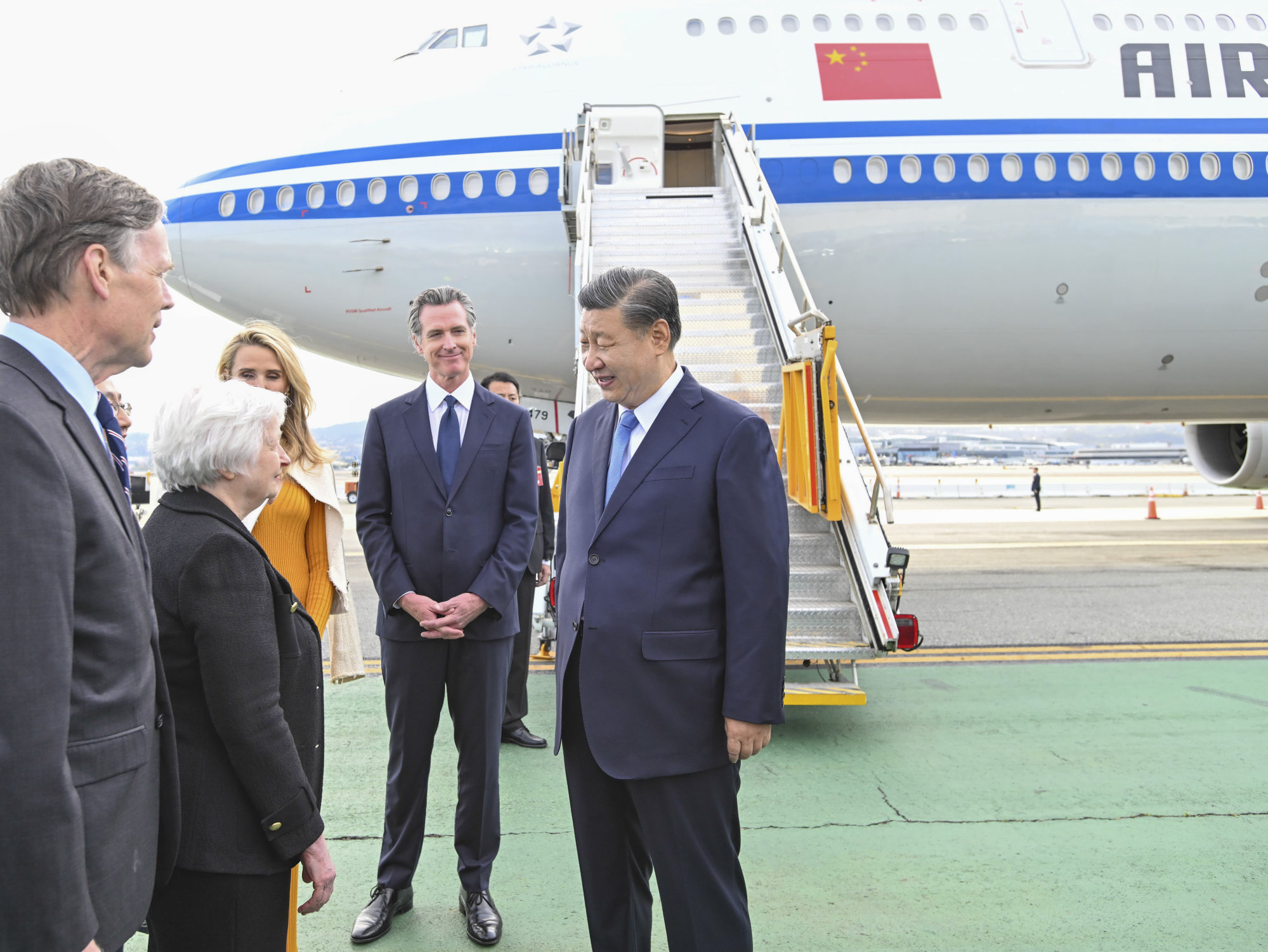
US-China joint climate action back on track, hours ahead of Xi-Biden meeting in San Francisco
- Identical statements issued separately set out joint goals in climate change battle, including landmark methane pledge from China but none on dirty coal
- Climate alignment ‘very important’ despite lack of breakthroughs, observer says, given the ‘challenging political situation’ between the rival powers
In identical statements issued separately on Wednesday, the two countries agreed to relaunch a working group on climate cooperation, “pursue efforts to triple renewable energy capacity globally by 2030” and “accelerate the substitution for coal, oil and gas generation”.
The world’s top two carbon emitters also agreed to include methane in their respective 2035 emission-cutting plans – the first time China has made such a pledge – and work together to control other non-carbon dioxide greenhouse gas emissions, as well as curb forest loss and plastic pollution.
Climate experts have welcomed the agreements, despite the absence of any pledge from China to phase out dirty coal or the building of new coal power plants.
“The Sunnylands statement is a timely effort to align the US and China ahead of COP28. It underscores the need for engagement between the two largest emitters of the world, a precondition for meaningful global progress,” he said.
The release of the details was carefully timed, coming just as President Xi Jinping arrived in San Francisco ahead of a meeting with President Joe Biden for their first in-person talks in a year. As such, the limited progress on the climate front was not surprising, Li noted.
“It reopens a lot of environmental communication and it shows again that re-establishing engagement and dialogue between the US and China is very important,” he said.
“But at the same time, we need to note that we have not seen any breakthroughs on some of the very core and substantive issues, such as COP28, energy transition and coal. I think this is largely in line with expectations, that under the current challenging political situation between China and the US, any climate outcome will only be ‘floor setting’, not ‘tone setting’ or ground breaking.”

Despite their differences on setting targets for emissions reductions and whether climate issues should be viewed separately from other bilateral disagreements, climate change has long been pitched as a rare bright spot in the rapidly declining US-China political ties.
“China and the US recognise that the climate crisis has increasingly affected countries around the world,” China’s Ministry of Ecology and Environment said in the statement.
Both sides also recommitted to the 2015 Paris climate accord goals of holding global warming to “well below” 2 degrees Celsius compared with pre-industrial levels and trying to limit the increase to 1.5 degrees.
But the statement also said that their efforts should be based on principles of equity and “common but differentiated responsibilities and respective capabilities, in light of different national circumstances” – a standpoint Beijing has used over the years to defend its perceived lack of transparency and ambition in emissions reduction.
The revived working group, which was first established in 2021, would focus on “energy transition, methane, circular economy and resource efficiency, low-carbon and sustainable provinces/states and cities, and deforestation”, according to the statement.
The two sides stressed “the importance of COP28 in responding meaningfully to the climate crisis during this critical decade and beyond” and agreed to work together to “rise up to one of the greatest challenges of our time for present and future generations of humankind”.
They also agreed to restart “bilateral dialogues on energy policies and strategies” and “immediately initiate technical working group cooperation” on the reduction of methane, of which China is the world’s biggest emitter.
Other commitments included “at least five” large-scale cooperation projects in carbon capture, utilisation and storage by the end of the decade.
Days after wrapping up the November 4 to 7 meetings with Xie, Kerry said that their talks had resulted in some “very solid understandings and agreements” and he hoped the release of the results from those meetings soon would “help the world by focusing on renewables and other things”.
Climate cooperation had been suspended after former US House speaker Nancy Pelosi visited Taiwan in August last year, angering Beijing.
The resumption of the mechanism is the result of months of negotiations between Kerry and Xie, as they built on the consensus reached when Xi and Biden last met, on the sidelines of the Group of 20 summit in Bali a year ago.
It remained to be seen how the Sunnyland climate agreement would be received by Xi and Biden, Li said, noting that COP28 still had “its work cut out”, particularly on fossil fuels.
“The US-China talks will help stabilise the politics when countries meet in the UAE, but critical issues such as the fossil fuel phase-out still require much political effort. China also needs to consider what further ambition can be brought to the COP,” he said. “Stopping the approval of new coal power projects would be a good next step.”
Domestic political factors may also hobble efforts to resume climate cooperation and the implementation of the Sunnyland agreements.
The Biden administration’s climate efforts suffered a setback on Tuesday after a US federal appeals court panel ruled on Tuesday in favour of energy industry groups.
A massive offshore oil and gas lease sale in the Gulf of Mexico must be held without ecological restrictions, the ruling said, throwing out the administration’s plan to scale back the sale to protect an endangered whale species.

